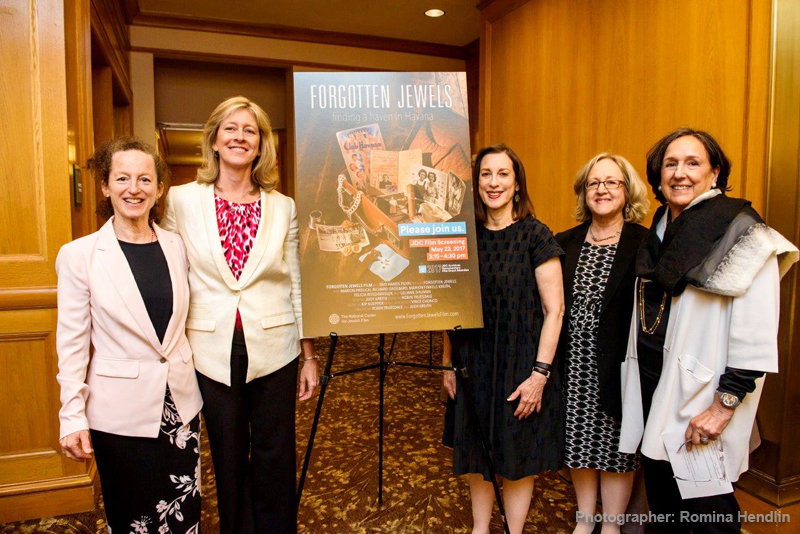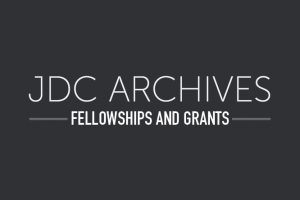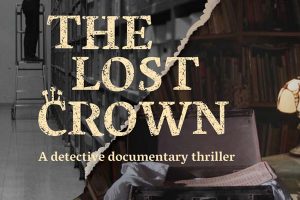
Forgotten Jewels, A Haven in Havana with First-Ever Awarded JDC Archives Documentary Film Grant
May 19, 2017
New York, New York, May 18, 2017 – The American Jewish Joint Distribution Committee (JDC) announced today that Forgotten Jewels, A Haven in Havana, directed by Judy Kreith and Robin Truesdale, was awarded its inaugural JDC Archives Documentary Film Grant. The film recounts the story of Jewish refugees fleeing Nazi-occupied Europe for a safe haven in Cuba and ultimately, creating a diamond polishing industry in Havana that enabled thousands of Cubans and refugees to survive during World War II. The two finalist films selected were GI Jews: Jewish Americans in World War II, directed by Lisa Ades, and Who Will Write Our History, directed by Roberta Grossman and based on a book by historian Samuel Kassow of Trinity College.
“We are so proud to recognize the outstanding contribution that Forgotten Jewels makes to both our understanding of Jewish history and humanity’s capacity to overcome great odds,” said Jane Swergold, JDC Board Member and Adjunct Professor at Fairfield University, and Linda Levi, Director of the JDC Archives. “We are heartened that our Archives, as a critical repository of JDC’s past and ongoing work with Jews in need, played a vital role in the making of this important documentary as well our two wonderful finalists GI Jews: Jewish Americans in World War II and Who Will Write Our History”
Forgotten Jewels is a collaboration of Judy Kreith and Robin Truesdale. Ms. Kreith, based in Colorado with a background in dance and choreography, has a personal connection to Cuba as her mother was a Jewish refugee in the country and appears in the film. Ms. Truesdale is an independent documentary filmmaker, director, freelance editor, and producer who has worked with major clients such as ABC, NBC, and FOX.
“Since I was a child, my mother has told me stories of her almost miraculous escape from Nazi-occupied Europe to the Island of Cuba. I felt that stories of Jewish refugees who escaped to Cuba should be documented for the future. Her experience and those of other refugees who polished diamonds in Havana — as a means of economic survival — is a little-known but essential part of Jewish history. This film represents years of passion and dedication that Robin and I shared as we gathered testimonials, precious archival materials, and colorful aspects of Cuban life through music, video, and photos of the past and present,” said Kreith.
GI Jews: Jewish Americans in World War II depicts the story of the Jewish men and women who fought for the U.S., and their people, as they struggled with anti-Semitism, emerging from their wartime experiences more connected to their American and Jewish identities. The ninety-minute documentary Who Will Write Our Historyhighlights Emanuel Ringelblum, an important Warsaw ghetto resistance leader and JDC representative in that city, and the Oyneg Shabes Archive, the secret archive collection he created in the Warsaw Ghetto.
Thirty films were submitted for consideration for the JDC Archives Documentary Film Grant from talented filmmakers representing six countries around the world, including the U.S., Israel, France, Canada, Germany and Hungary.
“Archives come to life when we use them in the context of story. In weaving together personal memory, historical events, and powerful imagery, we as filmmakers are able to help voices from the past speak loudly again,”said Truesdale.
“We are both deeply honored to be the recipients of the inaugural JDC Archives Documentary Film Grant,” the filmmakers commented.
The JDC Archives Documentary Film Grant funds $10,000 towards post-production and/or distribution costs of a documentary which utilizes JDC’s archival collections for a film which focuses on 20th century Jewish history including issues, events, and personalities related to overseas Jewish communities, international humanitarian assistance, and more.
Boasting one of the most important collections for the study of modern Jewish history, the JDC Archives comprises the historical records of JDC, which has worked overseas with Jewish communities and others in distress since WWI. With records of activity in over 90 countries from 1914 to present day, the archives includes over 3 miles of documents, 100,000 photographs, a research library of more than 6,000 books, 1,100 audio recordings including oral histories, and a collection of 2,500 films and videos. For more information, visit www.archives.jdc.org.
About JDC
The American Jewish Joint Distribution Committee (JDC) is the world’s leading Jewish humanitarian assistance organization. JDC works in more than 70 countries and in Israel to alleviate hunger and hardship, rescue Jews in danger, create lasting connections to Jewish life, and provide immediate relief and long-term development support for victims of natural and man-made disasters. Learn more at www.jdc.org


